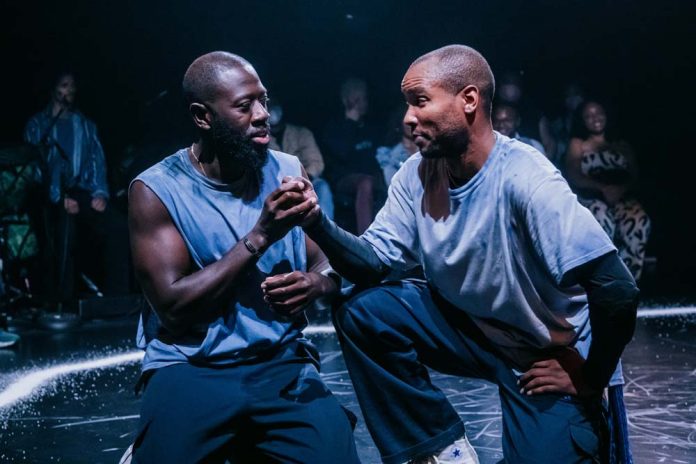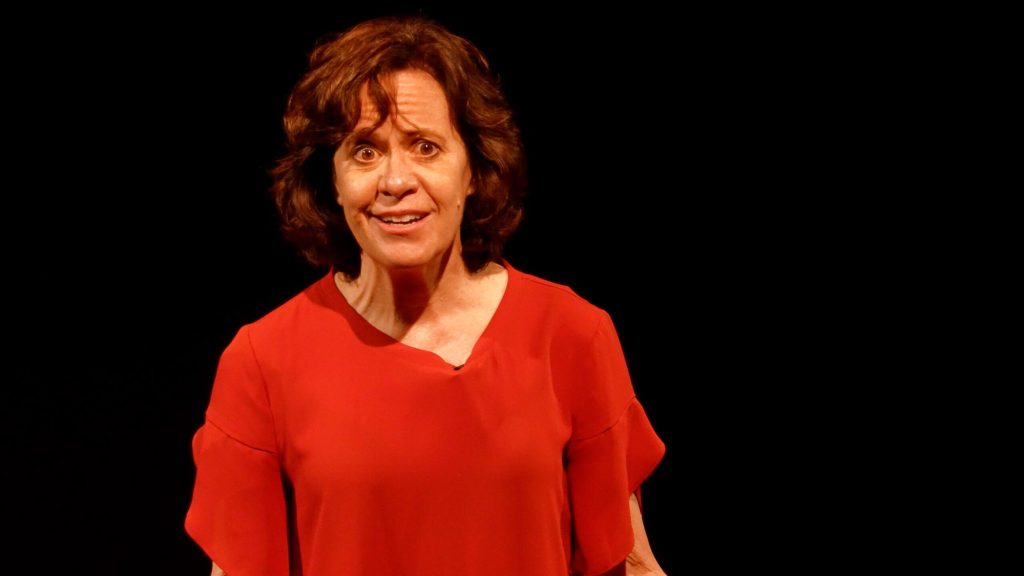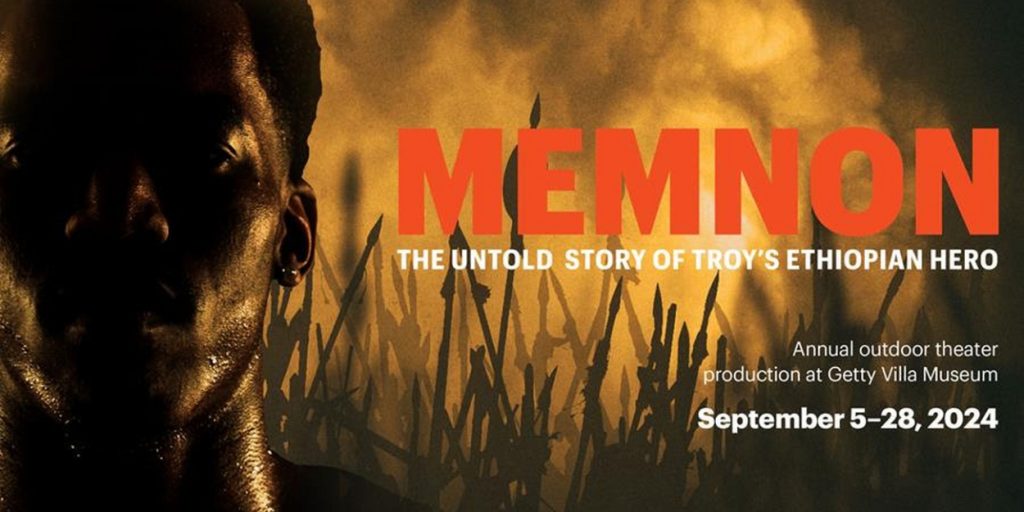
The Brothers Size by Tarell Alvin McCraney is an exuberantly theatrical drama that weaves together the pulsing rhythms of the bayou with African Yoruba mythology to create a stylized story of love and heartache. As Artistic Director of the Geffen Playhouse, McCraney is introducing audiences to one of his very first plays as an entrée into the Geffen’s upcoming season of story-driven productions.
McCraney describes the Yoruba as a cultural group that includes up to 40 million people with their homeland in Southwestern Nigeria, the largest group of African people enslaved in the 19th century. Yoruban practices and beliefs spread across the globe, intertwining with existing belied and rituals of other cultures, particularly in the American South. The Brothers Size character names invoke Yoruba orishas, or deities: Ogun is the god of iron-working, the patron deity of all those who use metal in their occupations. Oshoosi is the divine hunter associated with the human struggle for survival – cunning, intelligent, and cautious. Elegba is the guardian of the crossroads of life, but is also well known for being the orisha of chaos and trickery who leads mortals into temptation.
Set on the back-roads of the Louisiana bayou, the play follows the path of the recently paroled Oshoosi Size (Alani Ilongwe), superficially lazy due to fear and confusion as he seeks to find direction to jumpstart his life. Working in an auto repair shop for his brother Ogun (Sheaun McKinney), however, is not what Oshoosi had in mind. “It would not be called work if I want to do it,” Oshoosi explains.
Ilongwe moves like a caged animal as well as a joyous spirit when the chance to live the easy life he has always wanted seems to be a real possibility when his prison “brother” Elegba (Malcolm Mays) shows up with an appealing offer. Mays constantly slinks around and maneuvers his way in and out of the brothers’ lives to get ahead at their expense, while Oshoosi finds himself torn between his loyalty to his brother and wanting to follow his own dreams.
McKinney’s penetrating stare, as the stalwart older brother Ogun, demonstrates his need to be a strong guiding light, always doing his best to keep the lazy Oshoosi on the righteous path. McKinney brilliantly opens his soul and lets us see the deep frustration as well as Ogun’s overwhelming love for his seemingly ungrateful brother who always manages to make stupid mistakes, mostly due to his poor choice of friends.
But what makes the play even more appealing than the skill of the actors is McCraney’s script which has the characters speaking their stage directions, often directly to audience members. Thus, the characters continue to remind us we are in a theater and the story is being told for us. This constant breaking of the 4th wall brings the audience more deeply into the hearts, minds, and souls of the characters as they share the trials and tribulations each must face out of respect for “brotherly love.”
Along with Suzu Sakai’s scenic design, basically a circle drawn onto the floor into which the characters step to tell their stories, kudos go to all members of the production team who have melded their talents into a fine piece of theater: lighting design by Adam Honoré, working class costume design by Dede Ayite; and expressively emotional, creative choreography by Juel D. Lane.
The Brothers Size written by Tarell Alvin McCraney continues as a co-production with The Shed, through September 8 in the intimate Audrey Skirball Kenis Theater at the Geffen Playhouse, 10886 Le Conte Ave, Los Angeles 90024, directed to grab your attention from moment-to-moment by Bijan Sheibani. Tickets and a complete performance schedule are available at www.geffenplayhouse.org, by calling (310) 208-2028, or sending an email to boxoffice@geffenplayhouse.org. Metered street parking or local pay lots available. Arrive early and enjoy pre-show music in the theater performed by Stan Mathabane.

Patient 13 written and performed by Gail Thomas and directed by Dan Oliverio, grabs your attention and pulls you into the life of a chronically single, downwardly mobile woman who has always been good at staying busy, setting boundaries, and avoiding intimacy. That is, until a scary cancer diagnosis makes her realize that she just might need to slow down, chill out, and get some help. But, who can she trust since she has already gotten rid of all the toxic people in her life, including Wes, her “Mr. Maybe” she met online and has been causally dating?
This life-affirming comedy tracks Gail’s quest to find the line between herself and others after surviving surgery, chemo, and then participating as Patient 13 in a ground-breaking FDA study that gave psilocybin (magic mushrooms) to cancer patients with anxiety and depression. The process of enduring a 6-hour mind-expanding trip is brilliantly staged in the intimate space with flashing lights of multiple colors, which Gail describes afterwards as having made her feel like “the luckiest unlucky person” in the world for its positive results. In fact, that studyblazed a trail for the potential legalization of the psychedelic for use as a medical treatment.
“My goal is to entertain, inspire, and empower others to appreciate the nuances and absurdity of life,” says creator Gail Thomas. “Experiencing universal human emotions together in the theater can be transformative [since] I think of my audience as close friends. Patient 13 is my gift to people who grapple with tough decisions, complicated relationships, and self-love. I hope that it helps people see that they are not alone. We’re all in this together, like it or not.”
Thus, Gail reminds us how universal it is dealing with our emotions when faced with decisions sure to affect the rest of our lives and the people in it, all the while keeping us entertained with humor, creative staging using a single chair, and sincere honesty.
Director Dan Oliverio shares, “Although the play is an intimate story, it reflects our greater cultural concern with how we care for one another and how institutionalized fear and loneliness keep us apart, [echoing] the longing we so acutely feel for connectedness, bravery, and hope. All over the world, people are reexamining their assumptions about medical care and treatment… reevaluating the stigmas around certain drugs and diseases. In California, efforts to legalize psilocybin are ongoing, with the most recent bill vetoed by the governor this year.”
Produced by Jennifer Sorenson with associate producer Rose Park, Patient 13 runs at 8pm on Fridays, 3 p.m. Saturdays, 1 p.m. Sundays through September 1 (post-performance talkbacks scheduled for Saturdays), presented by Rogue Machine in the Matrix Theatre (upstairs on the intimate Henry Murray Stage) located at 7657 Melrose Ave., Los Angeles, CA 90046. Run time is 60 minutes, no intermission. Tickets are $45 (Students $25 / Seniors $35). Reservations at https://www.roguemachinetheatre.org/ or 855-585-5185. Recommended for ages 16+. Street parking only.

The Getty Villa Museum and the Classical Theatre of Harlem are presenting the world premiere of Memnon for their 18th annual Villa Outdoor Classical Theater summer production. Written by Will Power with bold, vivid language and gripping dramatic conflict, Memnon tells the tale of an Ethiopian king who journeys to the city of Troy to fight alongside the Trojans in their darkest hour. This epic story, from the ancient Greek legend of the fall of Troy, has been overlooked for a millennium, until now!
Directed by Carl Cofield, associate artistic director of the Classical Theatre of Harlem, performances take place at the Getty Villa on Pacific Coast Highway in Malibu, on Thursdays through Saturdays, September 5–28, at 8 p.m., with previews on August 29–31 at 8 p.m., and ASL interpreted performances on September 19 and 26. Thursday night tickets are $45 ($40 for students and seniors), Fridays are $50, Saturdays are $55, previews are $30, available online at https://www.getty.edu or by calling (310) 440-7300. Picnicking before shows is encouraged (no glass containers) with a variety of onsite dining options available for purchase when reserving your tickets or onsite before performances. No admittance to the site without advance ticket purchase.
